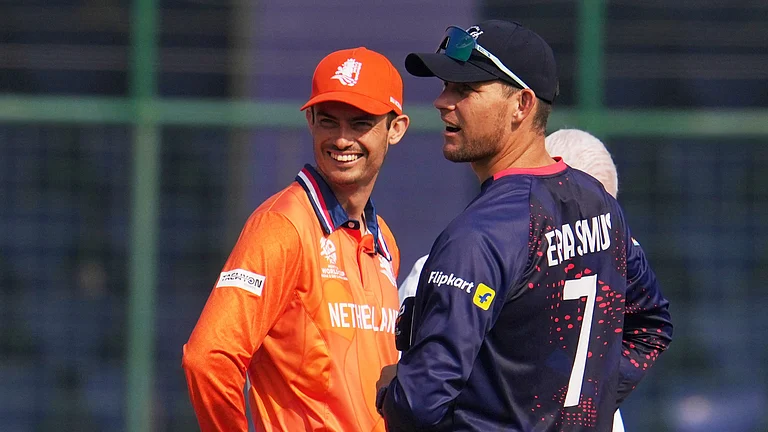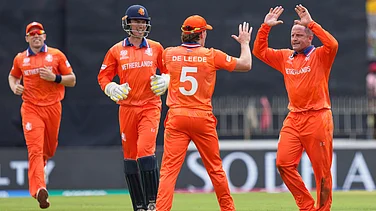THE beans stole the story, of course. Did the 2,000 cans of Heinz baked beans airdashed from Melbourne to Chennai as emergency rations for starving Australian ace bowler Shane Warne, reduced to eating naan and Vegemite because of his aversion to the local idlis and dosas, contribute to the Aussies' defeat in the first Test, or save them from a worse thrashing?
Warne's dependency on western junk-food has been the cause of wry amusement for some time now. Warne stormed out of a recent opening of a waxwork museum here when reporters suggested his slim effigy represented a figure of the past. The needling had got to the young man whose "larrikin" (boisterous) behaviour off-field and psyching of batsmen on the pitch had suggested a much thicker skin.
This aside, the Chennai match seemed to confirm that Australian cricket teams and India just don't mix. Australia has waited almost 30 years for a Test match win in India, but it continues to evade them.
Tours to India, and the attendant hardships, evoke much sympathy in Australian media. Column inches are stuffed with cliches about all that must be endured by the team in an Indian city. "Nor is it only the cricket itself that will challenge these visitors," wrote cricket commentator Peter Roebuck. "It will be hot and humid and the ground will be a ferment. A nearby canal will add its particular flavour to the atmosphere, and outside the ground the mass of humanity will pass noisily through streets that ought to be called 'mending car roads' and 'reading book roads'."
Heat, dust, the noisy cauldron of an Indian Test (17,000 spectators at the first Test at Chepauk Stadium), plus transport snarl-ups and lost baggage. To rub in the defeat, the air charter to take the Australians from Calcutta for their three-day Jamshedpur match fell through, and the Aussies faced a train journey before an alternative aircraft was found. "The subcontinent has remained a black hole for even the most successful Australian sides over almost three decades," noted The Australian, Rupert Murdoch's local flagship. "With only two Tests remaining and conditions heavily favouring the home side, it is now impossible to see this side improving that scenario."
Then there was the furore over umpiring. Was umpire George Sharp, "extracted from wintry England, where he had not umpired for months and deposited in India, fit for the job?" asked The Herald. The answer seemed to be: blame it on India. Said The Australian: "It has been hot, humid and noisy, making concentration difficult and decisions based on the sound of slight nicks nigh impossible. But the competitors and adjudicators are paid as professionals and expected to cope regardless."
Add to this the usual grouse against Indian wickets. "As brown as an Indian arm," was Roebuck's description of the pitch at Chepauk Stadium. What chance did the Australian team stand "against a battery of batsmen used to these surfaces," he asked.
Cricket historian Jack Egan, who toured India with a club team in 1981, and made a TV documentary on Donald Bradman has first-hand experience of Indian pitches: "The pitches aren't as good. The umpiring hasn't been as good. The wickets are different to anywhere else. There is the problem of heat, crowds: it's harsher. The grounds aren't as nice, they are harder. The crowds are partisan but appreciative."
But the news that Warne, known as Aussie cricket's most valuable resource, could be out of the tour has made Australia's chances of a Test win look slim. As for Heinz, run by Irish rugby great Tony O'Reilly, what seemed a great marketing coup in getting the vital ingredient rushed to Warne has gone badly astray. In the end, Australia's cricketing hero simply ran out of beans.


























